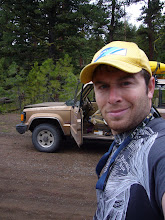
A Polecat
You scored 63 Need for Chaos, 10 Drive to Lead, 33 Extroversion, and 42 Logic!
"Your daemon would most likely manifest itself in the form of a polecat. The specie and the size of it is dependant upon the ranges of the scores and other factors, most notably geographical area, as a daemon is likely to take the form of an animal native to your area. Someone with a higher need for chaos may have a daemon manifest itself in exotic or strange looking species; while someone with more extroverted would have a larger more imposing daemon— such as a pine martin."
I chose the most exotic looking one i could find on the web, thanks!
According to the Columbia University Press, a Polecat is a carnivorous mammal of the weasel family. The name refers especially to the common Old World polecat, Mustela putorius, found in wooded areas of N Eurasia and N Africa. Similar to weasels, but larger and with longer fur, polecats grow to nearly 2 ft (60 cm) long, including the 6-in. (15-cm) tail. The fur, sold under the name fitch and much used in the early 19th cent., is dark brown above, with yellow patches on the ears and face. The belly, feet, and tail are nearly black. Like other members of its family, polecats have a scent gland under the tail which emits a fetid secretion used for territorial marking; the gland is most active when the animals are alarmed. Solitary, nocturnal animals, they spend the day in dens. They feed on small animals and eggs and are quite destructive to poultry and small game. Farmers have exterminated polecats in many areas, but they still survive in wilder places over most of their former range. Domesticated strains of polecat have been developed for hunting; these are called ferret, a name also applied to a wild polecat species of North America. The marbled polecat and striped polecat (see zorilla) are related animals of Africa and W Asia. The skunk, a New World member of the weasel family, is called polecat in some regions. Polecats are classified in the phylum Chordata, subphylum Vertebrata, class Mammalia, order Carnivora, family Mustelidae.


No comments:
Post a Comment